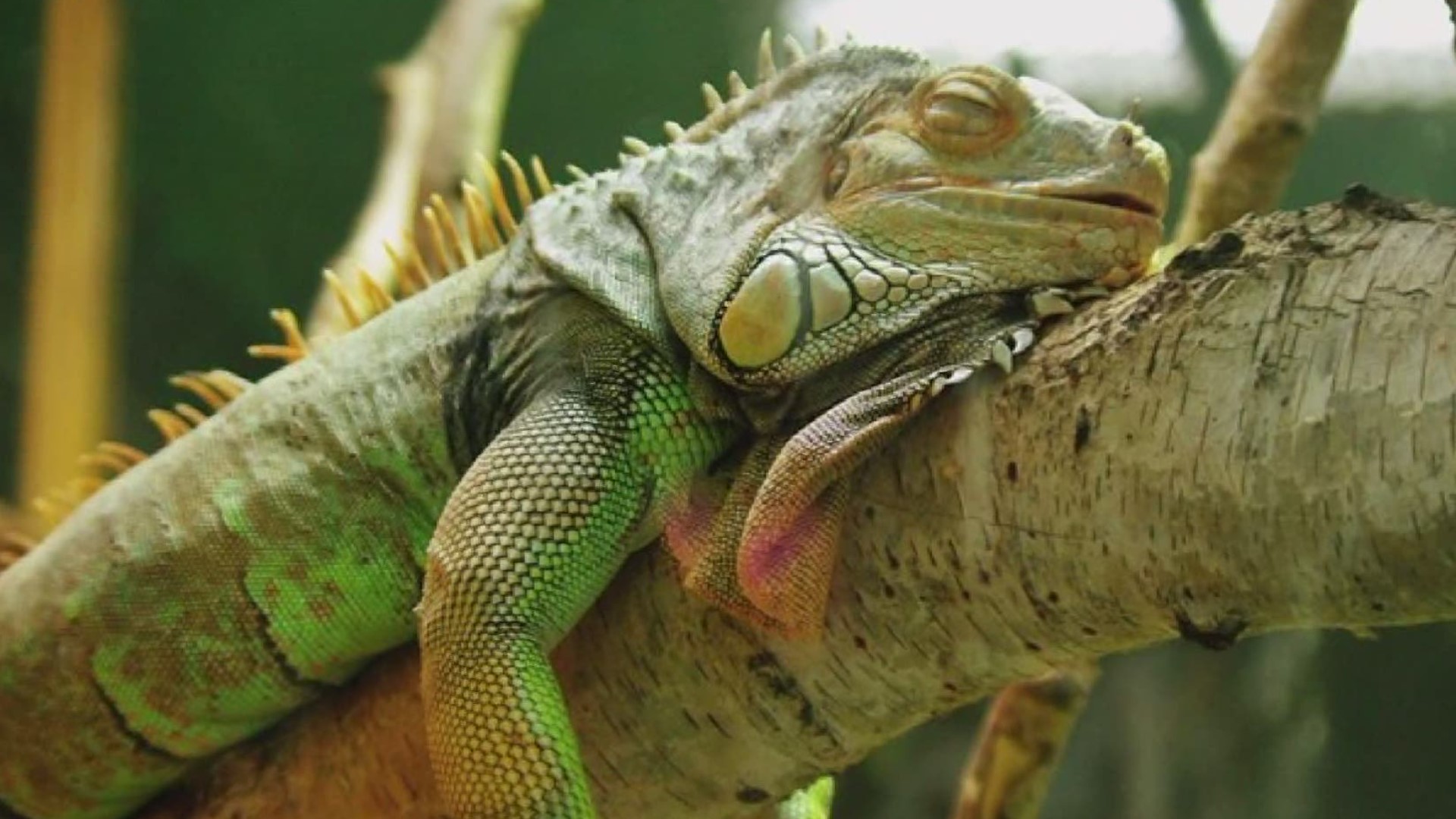Whether you’re new to Florida or have lived here your entire life, a “sluggish iguana alert” may be new to you.
Earlier this year, on Jan. 21, a “falling iguana alert” was issued by the National Weather Service in Miami because temperatures were expected to fall into the upper 30s to low 40s. The colder it is, the more likely the cold is to affect them.
"This isn't something we usually forecast, but don't be surprised if you see Iguanas falling from the trees tonight as lows drop into the 30s and 40s," the weather service tweeted earlier this year.
Iguanas are cold-blooded. They slow down or become immobile when temps drop into the 40s. They may fall from trees, but they are not dead.
Green iguanas, like most reptiles, are coldblooded animals, so they become immobile when the temperature falls to a certain level, said Kristen Sommers of the Florida Fish and Wildlife Conservation Commission in a Washington Post interview. Under 50 degrees Fahrenheit, they become sluggish. Under 40 degrees, their blood stops moving as much, Sommers said.
Although they may look dead, once they warm up, they slowly start to move again and return to normal.
- Tampa boil water notice runs through Thursday; city hands out free bottled water
- Police: Masked men kidnapped, tortured and killed 2 truckers execution-style in Florida
- DeSantis appointee quits over raid on former state COVID-19 data worker's home
- At least a dozen downtown St. Pete bars fined more than once for violating COVID orders
- Here's where to see Christmas lights around Tampa Bay
►Breaking news and weather alerts: Get the free 10 Tampa Bay app
►Stay In the Know! Sign up now for the Brightside Blend Newsletter

